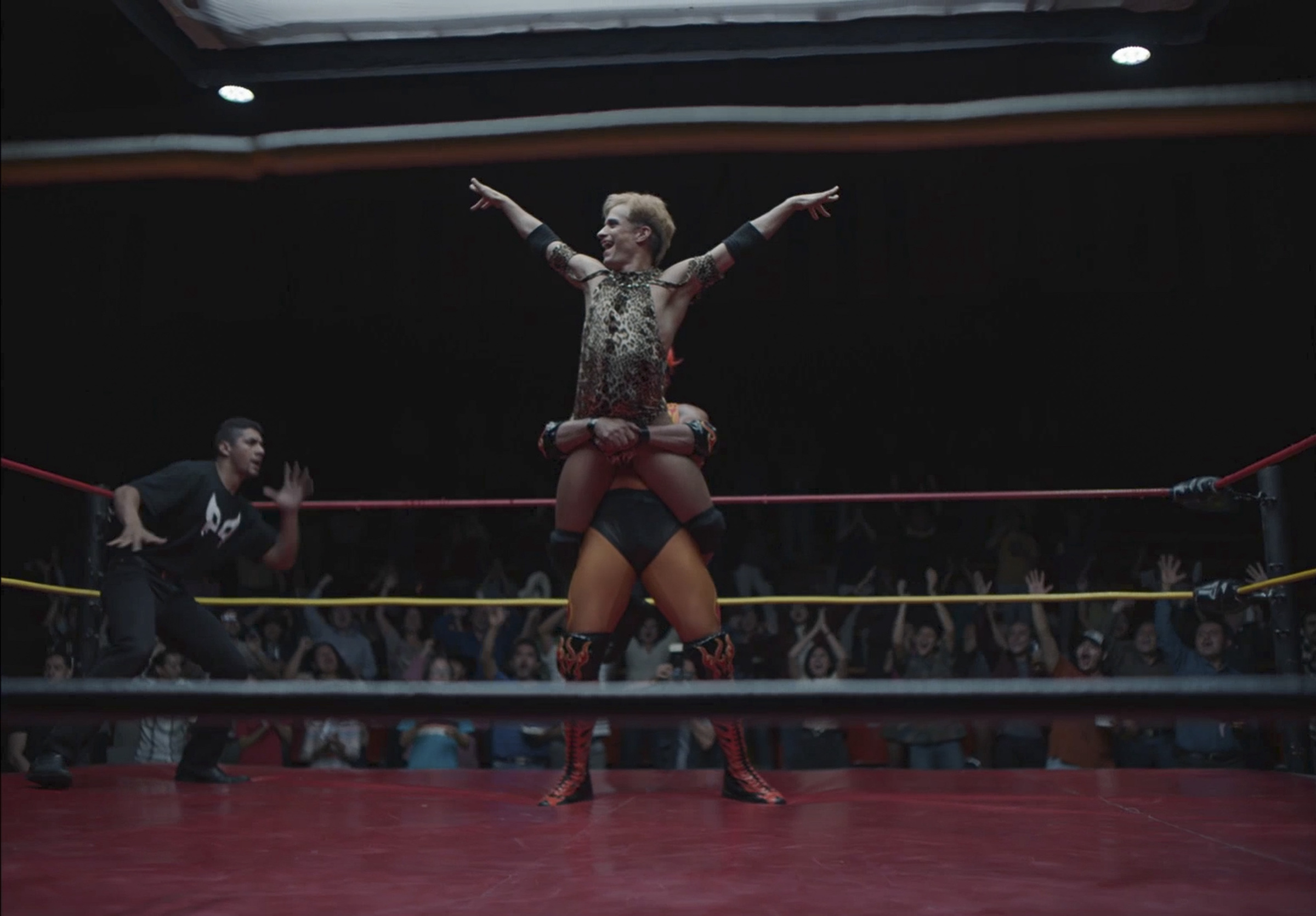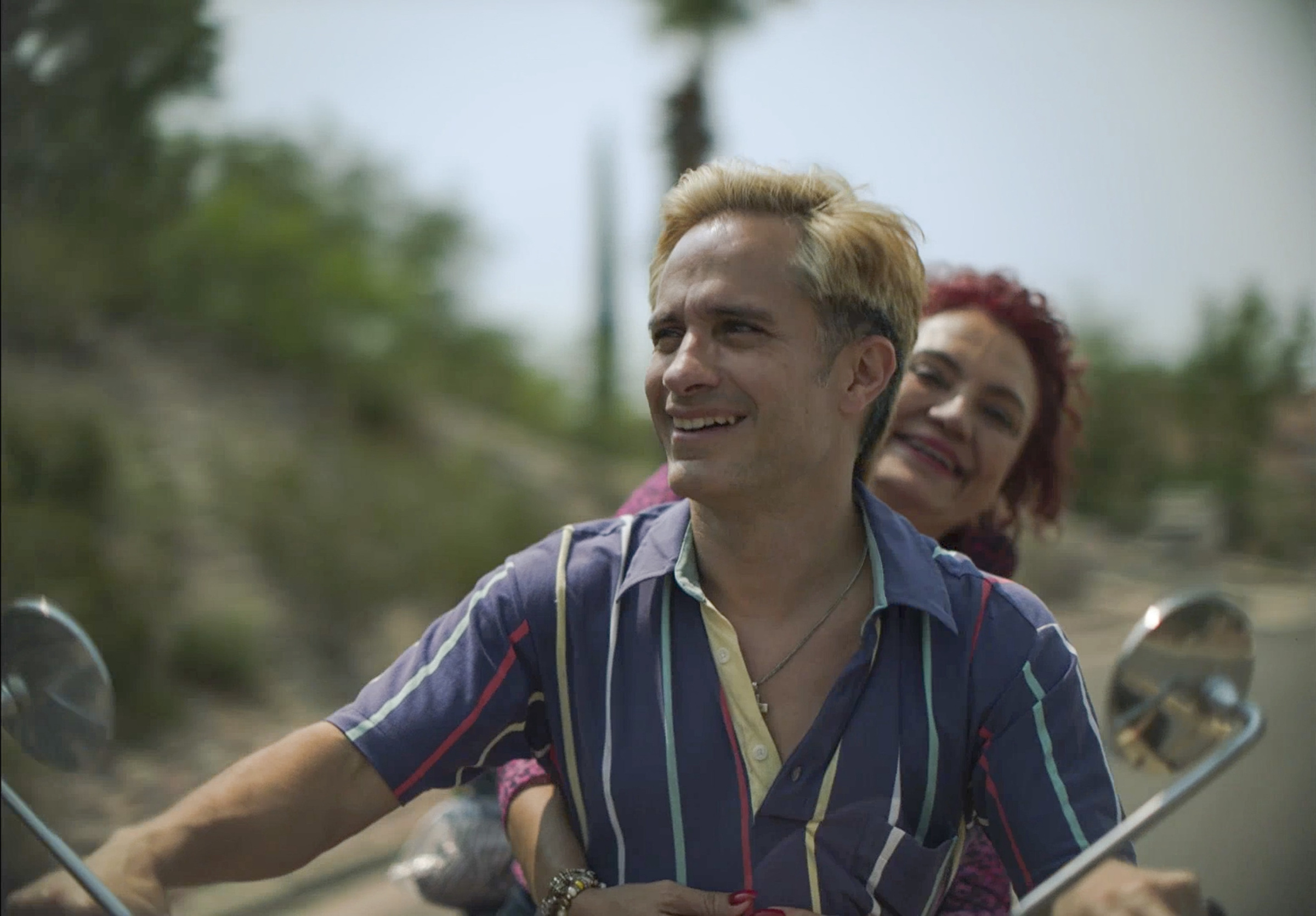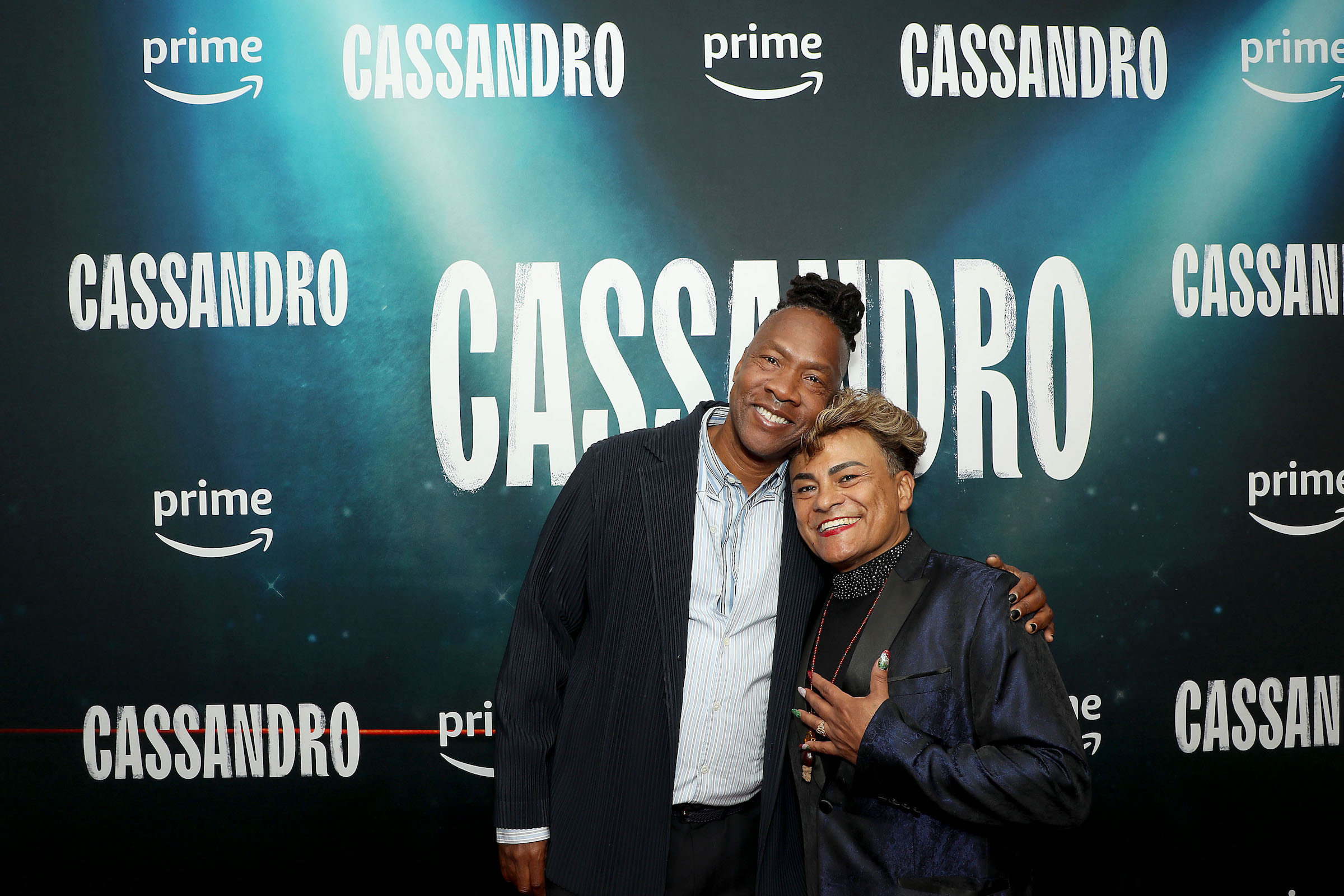
Halfway through Cassandro, the biographical drama about the wrestler Saúl Armendáriz out now on Prime Video, the soaring ballad “Hasta Que Te Conocí” plays over a poignant scene.
Saúl (Gael García Bernal) and his mother Yocasta (Perla de la Rosa) have snuck into the backyard pool of an empty house for sale in their city, El Paso. It’s a pretty thing that they can’t afford with a yellow kitchen, and Saúl wants to buy it for them with money from his fights as soon as possible. They float in the abandoned pool and chat, somewhere between serene and melancholy, as the Mexican singer Juan Gabriel croons, “Yo sabía de cariño, de ternura. Porque a mí desde pequeño, eso me enseñó mamá.” (“I knew of affection, of tenderness because since I was little, my mother taught me that.”)
Saúl, who goes by the lucha libre moniker Cassandro, is an exótico, a type of flamboyant wrestler. The film traces his path to embracing the role—in real life, he was the first exótico to win a world title. He is also openly gay, and in the movie, is in a relationship with a closeted, married fellow wrestler, Gerardo (Raúl Castillo).
The idea for the pool scene soundtrack originated on a ski lift in Utah: In 2018, the Oscar-winning director Roger Ross Williams was riding up a mountain with Castillo discussing the movie, his first non-documentary in the midst of development at the Sundance Directors Lab. Castillo asked Williams if he’d ever heard of Juan Gabriel. (He hadn’t.)
The legendary singer’s story mirrored Cassandro’s, Castillo told him. A flamboyant man who, although he never publicly came out as gay, was heralded as a queer icon, Juan Gabriel was also beloved in Mexico—even by straight, macho men. Many of those men are also lucha libre fans, and they love Cassandro in spite of—or perhaps because of—his extravagance.
How Saúl Armendáriz became Cassandro
“Hasta Que Te Conocí” is a perfect fit for the pool scene: Cassandro’s story begins at his mother. Yocasta is the pillar of the film and of Saúl’s life, his heart outside of his body.
“My mom gave me that unconditional love, regardless of how I was living, she could relate to a lot of my story,” the real-life Saúl says in The Man Without a Mask, Williams’ documentary short also about the wrestler. “Life for me and life for her, it was like, we fall down but then we get up, and then we fall down, and we get up. But she wouldn't let me hit my bottom.”

That perpetual yo-yo arc—falling down and getting back up—is the molten core of Saúl’s life and Cassandro’s narrative. He has faced sexual abuse, homophobia, drug abuse and addiction, his mother’s death, and his father’s rejection.
“He always lands back on top, because he's resilient, because he had to be resilient,” Williams says. “That's the story of being a queer person, especially being a queer person in Texas, in that community. It was the story of resilience.”
Saúl was 45 and had already been wrestling for 27 years when Williams met him to film the 2016 documentary short. He started out at age 17 as Mister Romano, a gladiator-themed rudo, or lucha libre villain. Soon, Baby Sharon—one of the first out exóticos, a true pioneer—encouraged Saúl to become an exótico, too.
“When I was a kid, I thought I was nobody, I thought I was a reject. I thought I didn't belong in this world. And when I became an exótico wrestler, it's like, wow, I'm home,” Saúl says in The Man Without a Mask. “That was my coming out day. And I went all-out, where I decided, if I'm gonna make this a transition, I'm gonna make it the whole nine yards. So now that's what attracts people.”
Cassandro changed the world of lucha libre
For the short, Williams went down to Ciudad Juárez, Mexico to film one of Cassandro’s matches at the place where Saúl took his first lucha libre lesson. (Juárez and El Paso are twin cities; they adjoin each other across the border. Saúl, who grew up in El Paso, often shuttled between the two.)
Out front, fans of all demographics asked for photos and signatures and handed their babies to him. Backstage, macho luchadores were hugging Saúl and kissing him on the cheek. When Cassandro, in full glam and a white brocaded train, strutted out to Gloria Gaynor’s “I Will Survive,” the crowd went wild, chanting his name.
Cassandro, who got his start in the late ‘80s, at the peak of H.I.V. and AIDS panic, has shifted the culture of a machismo-tinged sport toward acceptance, if not understanding. When asked what Cassandro has to say about gender roles, Williams says, “The walls of homophobia, those barriers, it's this possibility that they can be broken down.”
Saúl got severely injured in that match in Juárez. Two weeks later, he had a stroke, which paralyzed half of his body and impaired his speech. But at a recent screening and reception of Cassandro in Manhattan, he sat between Williams and the moderator during a Q&A, veneers shining as he beamed. (He has had to buy his teeth three times, due to wrestling injuries.) He punctuated the conversation with one-word exclamations, clearly excited to be there.

At the end of the film, Cassandro goes on Experiencias, the TV interview show of lucha libre legend Hijo del Santo (who plays himself in the movie). Even Hijo del Santo, who the New Yorker referred to as “the most conservative of Mexican males,” praised Cassandro for being a pioneer of the gay community in the world of lucha libre. (This interview did actually happen, in 2011.)
In the scene, Hijo del Santo passes the microphone to a fan who has a message for Cassandro. “A few months ago, I came out to my father,” the young man says. “I told him, and he gave me his support. He’s here with me tonight. I couldn’t have done it if it wasn’t for you.”
“He doesn't say a word,” Williams says. “You see the regret, the feeling of loss that he's had, that he didn't have that with his father. You see him realize that he has his own power to inspire other kids like him, queer kids, to inspire them, that they could do anything they wanted to if and they can be open about it. You just see it all happening right there in his eyes, and it's a marvel to behold.”
More Must-Reads from TIME
- Cybersecurity Experts Are Sounding the Alarm on DOGE
- Meet the 2025 Women of the Year
- The Harsh Truth About Disability Inclusion
- Why Do More Young Adults Have Cancer?
- Colman Domingo Leads With Radical Love
- How to Get Better at Doing Things Alone
- Michelle Zauner Stares Down the Darkness
Contact us at letters@time.com



